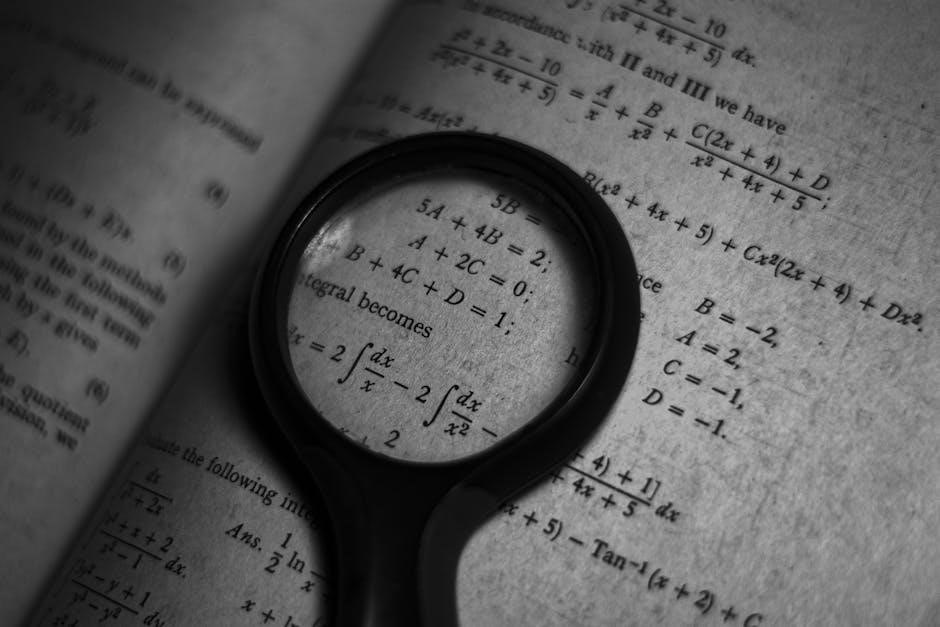
Definition and Importance
Goals of a Discrete Mathematics Course

Applications of Discrete Mathematics
Digital Computer Systems
The study of discrete math provides a foundation for understanding computer systems, including the design and analysis of algorithms, and the development of software and hardware components.
Digital computer systems rely on discrete math concepts, such as graph theory, combinatorics, and number theory, to perform tasks and solve problems efficiently.
The use of discrete math in computer systems has numerous benefits, including improved performance, increased efficiency, and enhanced security, making it an essential tool for computer scientists and engineers.
With the increasing demand for digital technologies, the application of discrete math in computer systems will continue to grow, driving innovation and advancement in the field, with online resources and pdf downloads available for further study.
Linear Algebra and Number Theory
The study of linear algebra and number theory provides a foundation for understanding discrete math concepts, such as vector spaces, linear transformations, and Diophantine equations.
Linear algebra and number theory are essential tools for computer scientists and mathematicians, with applications in data analysis, machine learning, and algorithm design.
The use of discrete math in linear algebra and number theory has numerous benefits, including improved problem-solving skills, increased efficiency, and enhanced understanding of complex systems.
With the increasing demand for advanced mathematical techniques, the application of discrete math in linear algebra and number theory will continue to grow, driving innovation and advancement in the field, with online resources and pdf downloads available for further study and research.

Discrete Mathematics and Its Applications
Book Notes and Solutions
Algorithm Design Manual

Ethical Implications of Discrete Mathematics
Bias and Discrimination in AI Algorithms





